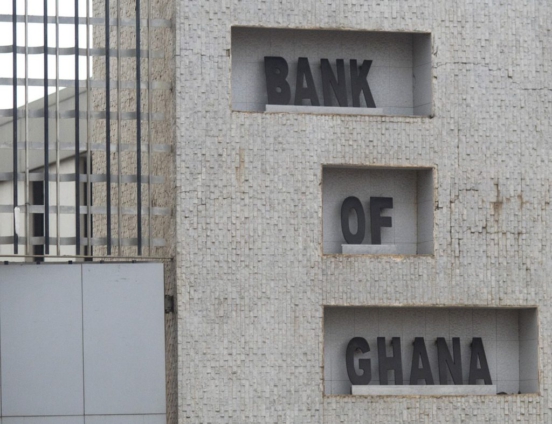The Bank of Ghana is rejecting claims by investment banker Togbe Afede XIV its policy measures have led to high-interest rates in the country.
This was captured in a statement issued by the Research Department of the Bank of Ghana.
The Research Department of the Bank of Ghana in a press release noted that claims by the investment Banker, that the Central Bank has lost focus, can best be described as unfounded and inaccurate.
The Bank of Ghana maintains that it has kept to its main focus of inflation targeting which has gotten, results in recent times.
The Bank maintained that this program has over the years had rather led to some significant reduction in the inflation rate, which has fed into policy rate reduction, significant, until recent times.
The Bank also argues that some of its policy measures had also helped in stabilizing the Ghana cedi in recent times, and that can not in any way be linked to the Central Bank losing focus.
On claims that the Bank of Ghana is rather competing with private banks for profit and it should be blamed for the current interest rate in the country also as false.
The Bank of Ghana argues that it will normally not react to some of these things, but it maintains that it is important to set the record straight on some of this stuff, just for the sake of records.
In their statement, the Bank of Ghana noted that “we believe it is disingenuous on the part of anyone who tries to shift the focus away from the real structural issues that have challenged the lowering of lending rates in 6 Ghana and the progress the Bank of Ghana has made and continues to make in this particular area, and rather use biased analysis to shift the blame to the central bank and the commercial banks.
“This is doing a huge disservice to the policy discourse that is currently ongoing to find a way to address these structural bottlenecks and the legacy of years of macroeconomic mismanagement, as we try to build back better from the impact of the pandemic.”
Latest Stories
-
WAFU B U-17 Championship: Ghana drawn in Group A, face Benin and Cote d’Ivoire
18 mins -
Two hit by stray bullet as Police clash with ‘wee smokers’
31 mins -
Okyeame Kwame aims for another Artiste of the Year win after 15 years
43 mins -
NAGRAT gives government one-week ultimatum to redeem unpaid pensions for 700,000 workers
45 mins -
Deloitte launches Technology, Media and Telecom predictions for 2024
1 hour -
Meta AI expands to Ghana, Nigeria and other countries in Africa; adds new features
1 hour -
GPL: Expect a new Kotoko against Samartex – Ogum tells fans
2 hours -
Court orders service of notice for DNA test to Mohbad’s wife
2 hours -
Changes to Ghana’s oil and gas royalty and licensing scheme to be implemented in 2024
2 hours -
Ghana’s oil production to rebound in 2024 growing by 5% – Fitch Solutions
2 hours -
Davido gifts fan $50K to clear off her student loan
3 hours -
Netflix: Profits soar after password sharing crackdown
3 hours -
OSP files additional charges against former PPA CEO Adjenim Boateng Adjei
3 hours -
Samuel Anini’s ‘Legacy of Hope’ to be launched in Finland
3 hours -
Fitch Solutions projects 19.0% average inflation for Ghana in 2024
3 hours

